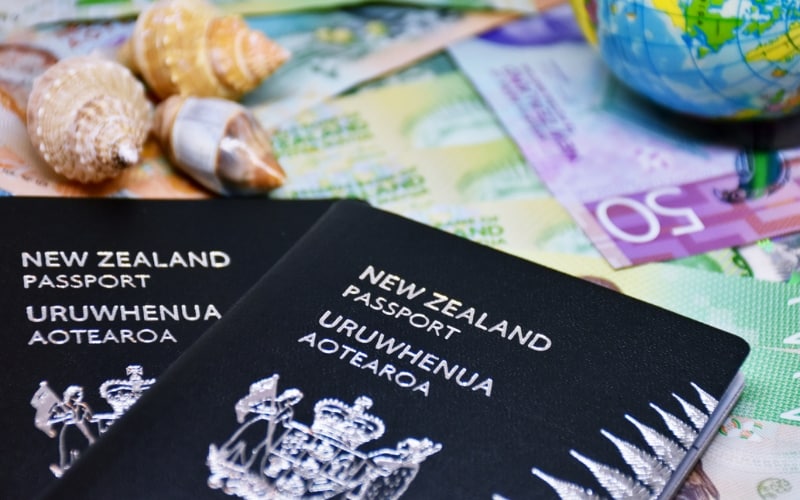New Zealand has long been a coveted destination for expats seeking a fresh start. For those considering making this impressive country their new home, one question always arises – what’s the best time to move to New Zealand from the UK?
It’s a question that encompasses a multitude of factors, from the job market and housing trends to visa requirements and personal circumstances. In this blog, we embark on a journey to explore the ins and outs of choosing the ideal time to relocate to New Zealand, helping you make informed decisions that will set the stage for an enriching, successful, and seamless transition.
What Time of Year is Best to Move to New Zealand from the UK?
The New Zealand summer around December – January, is regarded by many as the best time to visit or move to New Zealand. This is also convenient for the start of the academic year.
New Zealand, with its stunning landscapes and vibrant culture, is a dream destination for many expats. If you are planning to move to New Zealand, you are in for an exciting adventure. However, choosing the right time of year to make your move is a key decision. When you are planning your relocation, it’s important to think about the various seasons.
Seasonal Considerations

New Zealand has quite a moderate climate but this can play a part in your decision whether you want to move or visit in a quieter time of the year or in the warmth of the summer.
Summer (December – February)
New Zealand‘s summer is a popular choice for moving, and it’s easy to see why. The weather is warm, with longer daylight hours, making it ideal for settling in comfortably. But, summer is also the peak tourist season, which can lead to higher prices and more crowded cities.
Autumn (March – May)
Autumn offers pleasant weather in New Zealand, with beautiful foliage and fewer tourists. It’s a great time for a smooth transition. But, the weather can be unpredictable, and some parts of New Zealand may experience more rainfall during this time of year.
Winter (June – August)
If you prefer a quieter time, consider moving to New Zealand during the winter months. It’s off peak, which means fewer tourists and potentially more affordable housing. However, it’s important to remember that New Zealand’s winters can be chilly and wet, which could make moving more challenging, especially on the South Island.
Spring (September – November)
Spring is another excellent time to move to New Zealand, with milder weather and blooming landscapes. Like autumn, spring can be a bit unpredictable, which is something to take into consideration. For example, you may encounter more rain.
Peak Moving Season
The peak moving season in New Zealand typically aligns with the end of the school year and the warmer months. This period, from late November through to February, usually sees a surge in relocations, both domestic and international. This is for a number of reasons. For example, the weather is at its best during the peak season, making moving house a lot more comfortable.
For anyone with children, moving during the peak season allows them to adapt to a new school year seamlessly. If you choose to move during peak season, you will arrive in New Zealand in time to enjoy various summer festivals and outdoor events.
Of course, there are downsides that come with arriving in New Zealand during the peak moving season. Due to increased demand, moving services, accommodation and even flights might be more expensive. You’ll also be competing with more people for housing and other resources.
Deciding When to Relocate to New Zealand
The School Year

One of the most important considerations about the best time of year to move to New Zealand if you have children is the school year. The UK school year starts in September and finishes in June / July.
However, the New Zealand school academic year starts in early February and concludes in mid-December, for the summer holidays. So for most British families timing to arrive in December to allow time for acclimatisation and settling in before starting at a new school may be the the best option. However, if you have older children doing GCSEs or A Levels, it may be best to wait for these to be completed before making the move down under.
The school year in New Zealand is divided into two half-year periods (semesters) with two terms each, the so-called High School Terms. Each term is approximately 10 weeks in duration. At the end of each term, there are school holidays. So if moving in time for the start of the academic year in February is not possible, you may wish to plan your move for the beginning of one of the other school terms.
Job Market
One of the main things that you should consider when moving to New Zealand is the job market. Research your industry and potential job opportunities before deciding when to move, to ensure that work will be available for you.
Check for labour shortages or in demand skills in your field, as this will increase the chances of you securing a role. Planning your move when job prospects are favourable will make your transition easier.
Housing Market
The housing market in New Zealand can be competitive, particularly in major cities such as Auckland and Wellington. It’s important to keep an eye on property trends and consider factors like affordability, location and the type of accommodation that suits your needs.
There is no shortage of accommodation types in New Zealand, so you won’t be short of choice, but you can maximise the chances of finding your dream home by moving at the right time. Timing your move to coincide with a more favourable housing market can save you money and stress.
Visa and Legal Considerations

The legal aspects of moving to New Zealand are critical and they shouldn’t be overlooked. Ensure that you have the appropriate visa to live and work in the country and that you are moving at a time when these visas are valid.
Different visas have different requirements and processing times, so plan accordingly. Be prepared to gather the necessary documentation and meet visa requirements well in advance of your move.
Festivals and Events
New Zealand is known for its vibrant cultural festivals and events throughout the year. It’s worthwhile to plan your move around these celebrations to immerse yourself in the local culture. Events like Waitangi Day and the New Zealand International Film Festival can offer a unique and enriching experience.
Personal Factors
Your personal circumstances play a significant role in deciding when to relocate abroad. Consider factors such as family, education and lifestyle preferences. If you have children, the school year and educational options might dictate the timing of your move.
For example, you might want to move in time for the new school year. You might also want to move at the end of a work project or after a big family event. Assess your family’s needs and priorities to make an informed decision.
Research and Preparation
Research and preparation are key to a successful move. Research New Zealand’s healthcare, banking and tax systems, as well as the local customs and culture. Prepare a checklist of tasks, from securing housing and employment to understanding the healthcare system and legal requirements. A well thought out plan will ease your transition, making the entire process as stress-free as possible.
Don’t Delay, Now is the Best Time to Move to New Zealand

Once you have decided on the ideal time to move to New Zealand, the next step is to organise the logistics of doing so. Enlist the help of the United International Removals experts to ensure a smooth transition from the UK to New Zealand. To learn more about our services and how we can assist you with your move to New Zealand, you can visit our removals to New Zealand page or request a quote online.
Moving to New Zealand is a dream for many, with its breath taking landscapes, friendly culture, and high quality of life. However, deciding when to make the move is a crucial decision, and several factors must be considered to ensure a smooth transition. In this blog, we will delve into the key considerations when deciding the best time to relocate to New Zealand.
